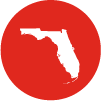Published July, 2020
The PJP Update, Positive Justice Project (July 2020)

The Positive Justice Project (PJP) is a national campaign of organizations and individuals, including those living with HIV, viral hepatitis, and other infectious diseases; medical and public health professionals; law enforcement; community organizers; advocates; attorneys; sex workers; social scientists; and others working to end disease and identity criminalization in the United States. We advocate at the federal and state level; create resources to guide policy reform; support attorneys working on HIV criminal cases; and educate, organize, and mobilize communities and policymakers in the United States. The Center for HIV Law and Policy provides ongoing coordination of the Positive Justice Project with the active support of the PJP Partners, the PJP Advisory Group, and the many individual and organizational members of the PJP.


CHLP Convenes National Organizations to Recommend Productive Law Enforcement and Corrections Responses to COVID-19

On June 18, CHLP and eight national groups renewed their call on jurisdictions across the country to replace arrests with a public health response to COVID-19 as outlined in the jointly authored Proposed Public Health and Public Safety Pathways for Criminal Justice System Responses to COVID-19, a set of principles and model projects outlining the best ways for law enforcement nationwide to proactively adapt to the COVID-19 pandemic and other public health crises.
The Pathways document highlights programs implemented by various prosecutors’ offices throughout the country as examples of how to decongest jails and prisons for the sake of public health, without sacrificing public safety. It urges collaboration between public health and criminal justice stakeholders, suggesting an approach that allows public health officials to lead on issues on which they have expertise.
In the weeks that have followed the document’s original release on May 27, these principles and recommendations have become even more relevant. Ongoing arrests, including those of protesters across the nation, are stifling efforts to maintain social distancing, reduce jail populations, and use the cite-and-release policies laid out in our document.
This effort is the culmination of a unique collaboration among prosecutors, defense attorneys, public and corrections health officials, medical institutions, and advocates, producing the first such consensus statement on the need for durable commitments to reducing the number of people who are incarcerated through release programs as well as dramatically reducing new arrests.
Joining CHLP are the Association of Prosecuting Attorneys, the National Association of Criminal Defense Lawyers, Community Oriented Correctional Health Services, UCLA Law’s Criminal Justice Program, the National Alliance of State and Territorial AIDS Directors, the National Legal Aid & Defender Association, Columbia’s Justice Lab, and the Fenway Institute.
Several media outlets covered the document, including The American Bar Association Journal, Filter Magazine, The Crime Report, a POZ Magazine article and an in-depth interview with Executive Director Catherine Hanssens in the Body.
CHLP Releases Up-To-Date Summary of U.S. Laws That Criminalize Disease
 On June 23, CHLP released an update of a popular publication, U.S. HIV Laws and Prosecutorial Tools, summarizing the federal and state laws used to prosecute people living with HIV (PLHIV), viral hepatitis, and other sexually transmitted diseases. The chart provides a current, detailed review of the variety of laws and range of penalties used to criminalize stigmatized diseases and identities in the military and in all U.S. states and territories.
On June 23, CHLP released an update of a popular publication, U.S. HIV Laws and Prosecutorial Tools, summarizing the federal and state laws used to prosecute people living with HIV (PLHIV), viral hepatitis, and other sexually transmitted diseases. The chart provides a current, detailed review of the variety of laws and range of penalties used to criminalize stigmatized diseases and identities in the military and in all U.S. states and territories.
The chart draws from the legal analysis in CHLP’s major criminalization resource, HIV Criminalization in the U.S.: A Sourcebook on State and Federal HIV Criminal Law and Practice, distilling the Sourcebook’s 600+ pages of legal research and analysis into an easy-to-use resource intended to support state advocates, policymakers, lobbyists, journalists, and the broader national Positive Justice Project (PJP).
"Having a comparison of the current statutes is an invaluable tool for local advocates to address the needs and to create strategies that reform the criminalization of health in the U.S.,” says Dorian-Gray Alexander, member of the Louisiana Coalition on Criminalization and Health. “This bird's eye view provides detailed information in a nutshell in a format that is easy to digest. Thank you, CHLP!"
Meet the PJP Partners
PJP Partners are organizations and individuals who participate in strategy discussions concerning the direction and resource needs of related decriminalization movements and work, and who collaborate with CHLP staff on select publications and projects that advance the shared goals of the Partners and their respective organizations.
Our current PJP Partners are:
The Association of Prosecuting Attorneys (Dave Labahn, Executive Director)
Women with a Vision (Deon Haywood, Executive Director)
Williams Institute, UCLA Law School (Brad Sears, Founder)
National Association of Criminal Defense Attorneys (Norman Reimer, Executive Director)
National Alliance of State and Territorial AIDS Directors (Amy Killelea, Senior Director, Health Systems and Policy)
Bryan C. Jones, Ohio HIV Justice Coalition
Davina Connor Otalor, Pozitively Dee HIV Blog Talk Radio
Jiselle Madison Parker, Board Member, Red Umbrella of NJ, Black Sexworkers Initiative
Recent News Highlights from TheBody.com
Will COVID-19 Make It Harder to End HIV Criminalization? Catherine Hanssens and Lauren Fanning of the Washington HIV Justice Alliance shared their knowledge of where legislators stand on the criminalization of disease and whether new laws criminalizing COVID-19 should be expected, as well as how any new laws could hinder the push to modernize criminal HIV laws.
Why is Nushawn Williams Still Not Free? Catherine Hanssens discusses the irrational policies at the Central NY Psychiatric Center in Marcy in this profile of Nushawn Williams, who remains confined at the Marcy facility after completing his prison sentence a decade ago for HIV-related exposure offenses. Catherine describes the conditions in the psychiatric facility and challenges the premise that Nushawn’s civil confinement is for mental health treatment.
How has COVID-19 Affected the Criminal Justice System? Catherine Hanssens was interviewed about the Pathways document recommendations on how criminal justice professionals can incorporate public health principles into their response to COVID-19 and maintain these approaches going forward to improve community health and safety.
Amir Sadeghi Speaks on Webinar on Black Women’s Health, the Criminal Justice System, HIV, and Intimate Partner Violence.
CHLP’s National Policy and Partner Strategist Amir Sadeghi participated in a webinar organized by the Missouri HIV Justice Coalition and reproductive justice organization Reproaction, and attended by HIV advocates from across the country. Amir joined St. Louis activist Kneeshe Parkinson of the Positive Women’s Network, Antoinette Jones of SisterLove in Georgia, and trans justice organizer Jay-Marie Hill of the ACLU of Missouri to discuss how black women living with HIV, especially trans women and women who engage in sex work, are criminalized, and how intimate partner violence exacerbates the marginalization many of these women experience. Evonnia Woods of Reproaction and Molly Pearson of Empower Missouri hosted and moderated the conversation.
PJP Advisory Group Call for Membership
The PJP Advisory Group is a national network of engaged advocates from across the U.S. who are interested in ending HIV criminalization. The Advisory Group was formed to provide a vehicle for individual community members, and the many diverse experiences and skills they offer, to inform the work of the PJP and the national conversation on the criminalization of HIV, viral hepatitis, IV drug use, and sex work. The expertise and lived experiences of PJP Advisory Group members provide powerful ways to understand the landscape of the movement and develop strategies for future projects. If you are committed to ending the criminal law response to HIV and other over-policed diseases and identities, support the basic principles of the PJP, and are interested in becoming a member of the PJP Advisory group, please email Amir Sadeghi at [email protected]. We offer an hourly stipend for participating in calls, meetings, and related work to active Advisory Group members who are not already full-time paid staff at another organization.

CHLP Endorses Legislation to Ensure COVID-19 Contact Tracing Confidentiality in New York State
In June, CHLP worked with local and national civil rights groups, public defenders and public health officials on a bill [A.10500-A (Gottfried)/S.8450-A (Rivera)] that prevents law and immigration enforcement access to COVID-19 contact tracing information, and a memo of support that calls on New York State legislators to pass it.. As contact tracing is rolled out across the state, advocacy groups are raising the alarm about the weaponization of intimate health information by police and ICE, and the use of law enforcement personnel to conduct contact tracing.
CHLP’s Amir Sadeghi joined bill sponsors Senator Gustavo Rivera and Assembly Member Dick Gottfried, the Chairs of the Health Committee, and advocates in a press conference on Tuesday, June 16 to announce support for the legislation, and to demand the protection of contact tracing data from law enforcement and immigration authorities. On July 23, the legislation passed the New York State Senate and Assembly. Advocates are urging Governor Andrew Cuomo to sign the bill without delay.
CHLP and New York Partners Call on Cuomo and the DOH to Issue Ethical Principles for COVID-19 Care Allocation in New York State

CHLP sent a letter to Governor Cuomo and New York state health officials urging the state to issue clear guidance to hospitals on how to allocate scarce resources in times of crisis such as the COVID-19 pandemic. The letter was joined by a coalition of New York organizations and individuals, including Treatment Action Group, National Black Leadership Commission on Health, SMART, National AIDS Treatment Advocacy Project, HEAT Program (Health Education Alternatives for Teens) and Callen-Lorde Community Health Center.
The letter warned against the discriminatory practices that could result if hospitals are not provided with clear guidelines that reflect state and federal protections against age, disability, and racial discrimination. New York’s current guidelines for triage during disease pandemics fail to ensure that triage decisions for delivery of emergency care resources, including ventilators, are never based on considerations of a person’s age, disability (including HIV), gender or race.e While New York now appears to have passed its peak of new COVID-19 cases, hospital admissions, and ventilator intubations, the recommendations in this letter remain relevant to a new surge in cases or another potential public health crisis.
State Advocacy Working Group Updates
 Arkansas
Arkansas
The Arkansas HIV Reform Initiative continues to grow their coalition and develop resources. Planning meetings are held on the second Thursday of the month at 11:00am (CT). To get involved, contact Marguerite Schauer at [email protected].
 Florida
Florida
A bill proposed in Florida this year, Senate Bill 626/House Bill 427, ultimately died in March shortly before the adjournment of the regular 2020 session. All that remained in the bill at that time was a change to the law on organ/blood/tissue donation, which carved out an exception to felony penalties and would have allowed PLHIV to donate blood, organs, or tissue to HIV-positive recipients who knew the donor was HIV-positive as well. Otherwise, donating blood, organs, or tissue while knowingly living with HIV would have remained a felony, with all other components of Florida’s criminal HIV laws also remaining unchanged.
Prior to the final version of the bill, the Florida HIV Justice Coalition supported a version that addressed Florida’s sexual exposure law, in addition to the law on organ/blood/tissue donation, but did not address the law making prostitution a felony for sex workers living with HIV. CHLP has argued that limited reform of this nature is problematic when sex workers represent approximately 67% of those who have been convicted under Florida’s current laws. For more information, contact Amir Sadeghi at [email protected].
 Georgia
Georgia
Georgia’s House Bill 719 passed the House in March before legislative action was stalled due to COVID-19 closures. The General Assembly then reconvened for two weeks in June before the 2020 session concluded on June 26. HB719 ultimately did not make it through the Senate in that time. The Georgia HIV Justice Coalition (GHJC) is looking ahead to 2021.
Back in March, the bill passed in the House with a vote of 124-40. Under the bill, failure to disclose HIV status would have remained a felony, with the maximum sentence reduced from ten years to five years. PLHIV could be prosecuted for failure to disclose if they knew their status, failed to disclose it to a partner, and engaged in a sexual act with the intent to transmit HIV, if the sexual act in question posed “a significant risk of transmission based on current scientifically supported levels of risk of transmission.”
HB 719 also would have decriminalized both the sharing of needles and blood or organ donation from PLHIV. It would have removed a provision in Georgia law that allows for punishment of up to 20 years for PLHIV or people living with hepatitis “assaulting” a law enforcement or corrections officer via bodily fluids.
Georgia HIV Justice Coalition meetings are held on the third Wednesday of the month at 6:30pm (ET). To participate, contact Johnnie Kornegay at johnnie.kornegay@
 Indiana
Indiana
House Bill 1182 was signed by Republican Governor Holcomb on March 18. The bill does not change any HIV-related criminal laws in Indiana. However, it includes several measures to improve HIV-related public health efforts in the state. These are: ensuring needle exchange programs continue through 2022; establishing a statewide suicide and overdose fatality review committee; revising the HIV testing code to remove barriers and ensure testing information is delivered in an understandable manner; incorporating HIV modernization science reforms related to reproductive health care; and removing stigmatizing language from the law, including inappropriate uses of the terms AIDS and ARC (“AIDS-related complex”).
Indiana’s 2020 legislative session is now adjourned. To get involved in current and future advocacy with the Indiana HIV Modernization Movement, contact Carrie Foote at [email protected].
 Louisiana
Louisiana
The Louisiana legislature adjourned in the midst of its 2020 session due to COVID-19 and recently reconvened only to consider legislation directly related to the pandemic and to pass a budget. The Louisiana Coalition on Criminalization and Health continues to hold advocacy planning calls on the second Wednesday of the month at 11:00am (CT). If you are interested in working with the coalition, contact Chip Eakins at [email protected]
 Missouri
Missouri
In early May, before the legislature adjourned for the year, Missouri’s House Bill 1691 passed the House by a vote of 11-3. However, the Missouri HIV Justice Coalition did not continue its advocacy for the bill at this juncture, due to its opposition to the legislature proceeding with lawmaking during lockdown. The position of the coalition was that the legislature should not have considered any general legislation when its proceedings were not open to the public due to COVID-19, out of respect for Missourians’ First Amendment rights. Empower Missouri and other Missouri organizations urged legislators to focus solely on desperately needed emergency measures responding to the COVID-19 pandemic. The Missouri HIV Justice Coalition remains active, looking ahead to the next legislative session.
HB 1961, sponsored by Representative Holly Rehder, removes HIV-specific language from Missouri’s criminal exposure law and replaces it with “a serious infectious or communicable disease.” The bill reduces but retains felony penalties for all forms of knowing exposure of another person to a serious infectious/communicable disease, from organ/tissue/bodily fluid donation; to contact with correctional or mental health facility staff, residents or visitors; to sexual partners, regardless of transmission, while reducing to a misdemeanor any disease exposure to a civilian that occurs in a “reckless manner.”
The prosecuting attorney or grand jury must use a pseudonym for the alleged victim when pursuing criminal charges under any of the bills’ provisions, while the bill provides no privacy protections for those charged with an offense, including those who are not ultimately convicted.
Another bill sponsored by Representative Rehder, House Bill 1486, passed through Missouri’s House of Representatives and went to the Senate in March. This bill would authorize the possession, distribution, and delivery of hypodermic needles or syringes for the purpose of operating a syringe exchange program by entities registered with the Department of Health and Senior Services.
Missouri HIV Justice Coalition meetings are held on the second Friday of the month at 1:00pm (CT). For more information, email Molly Pearson at [email protected] or visit the coalition’s website.
 Nevada
Nevada
Governor Sisolak recently appointed members of an Advisory Task Force on HIV Exposure Modernization. The task force began meeting this month and is due to make recommendations on changes to HIV criminal laws by September. This follows the passage of SB 284, which created the task force and set forth its duties.
Thanks to input from CHLP and the UCLA Public Interest Law Center, SB 284 was amended before its passage in 2019 to remove stigmatizing language and add more specifics regarding the membership and mission of the Task Force: membership was capped at 15 people, and the governor must ensure that “the majority of members are people living with HIV, people affected by HIV/AIDS, and/or people from occupations, organizations, or communities who are more broadly affected, or at risk of being affected, by current statutes and regulations of this State that criminalize exposure to human immunodeficiency virus (HIV).”
The Nevada HIV Modernization Coalition meets on the first and third Tuesdays of the month at 5:30pm (PT). For more information, contact Connie Shearer at [email protected]
 Ohio
Ohio
The Ohio Health Modernization Movement (OHMM) is continuing its work on a bill with State Senator Nicky Antonio’s office. Ohio’s Legislative Service Commission, which provides drafting assistance to the General Assembly, is currently providing input on details for the language of the bill, working with coalition members, with assistance from CHLP.
OHMM introduced their legislative toolkit via a webinar on May 12, and presented necessary information for PLHIV and social workers who serve PLHIV regarding the current law on disclosure in Ohio via a webinar on June 9. And on July 14, CHLP’s Amir Sadeghi presented in a webinar on molecular surveillance for OHMM that discussed the science of molecular surveillance, how to advocate for community concerns, and the impact on criminal code modernization efforts.
OHMM meetings are held on the third Monday of the month at 6:00pm (ET). If you are interested in more information, contact [email protected].
 Southern States
Southern States
The Southern HIV Decriminalization Network holds calls on the fourth Thursday of the month at 3:00pm (ET). The network shares information and ideas about the work of state groups in the South to reform their laws and reports on case developments of interest to the group. To join the call, contact Charles Stephens at charles.stephens@
 Virginia
Virginia
House Bill 864 will be considered in the 2021 legislative session. HB 864 changes the language regarding infected sexual battery and provides that, for a person to be convicted, the person must have known that they were infected with HIV, syphilis, or hepatitis B at the time of the offense; must have known that the infection was currently detectable and transmittable; and must have committed the offense without using a prophylactic barrier such as a condom or dental dam.
ECHO VA (Ending Criminalization of HIV and Over-incarceration in Virginia) was founded in June 2018 by Deirdre Speaks and Dr. Cedric Pullman to reform the state’s HIV-specific criminal laws and is currently focused on expanding their membership and finalizing their policy agenda. Meetings are held every month. To participate, email [email protected].
 Washington
Washington
On June 11, ESHB 1551, which reforms Washington’s criminalization law, went into effect after Governor Inslee signed it in March. The bill’s passage is a credit to collaborative work that began in 2012, including community organizations in Washington, former CHLP staffer Lauren Fanning, and the Washington HIV Justice Alliance. CHLP provided local advocates with analysis and support throughout these efforts.
ESHB 1551 reduces penalties for HIV exposure from a felony to a simple misdemeanor (punishable by up to 90 days in jail and/or a maximum $1000 fine), requires specific intent to transmit HIV and for transmission to occur, and removes the requirement for sex offender registration. Before this significant reform, the law carried a felony conviction (punishable by up to life in prison) for exposure, which required neither intent to transmit nor that transmission occurred. The law now affords PLHIV defenses against prosecution that were previously unavailable: (1) disclosure of HIV status or (2) the use of a condom or “other practical means to prevent transmission
If a person misrepresents their status to a sexual partner, intends to transmit, and transmission occurs, they are subject to the higher penalty level of gross misdemeanor, which is punishable by up to 364 days in jail and/or a maximum $5,000 fine. The reform retains the felony penalty for PLHIV who are convicted of transmitting HIV to a child or vulnerable adult. Only a conviction for this offense still requires registration as a sex offender; it is worth noting that the conduct required for this offense (sex with a child or vulnerable adult) would typically require sex offender registration regardless of whether the defendant is a PLHIV.
Some of the bill’s changes to the public health code concerning interventions with sexually active persons who are living with an STI, including HIV, call for administrative rulemaking, which is currently in its early stages. The Washington HIV Justice Alliance has been working with Washington’s Department of Health and Board of Health as they begin this process, and the coalition will remain involved to ensure that the community has input. For more on other provisions in the bill, read CHLP’s analysis online.

CHLP’s assistance in cases includes counseling defendants and their families, providing legal and trial strategy support to criminal defense attorneys, identifying and assisting with the preparation of medical and scientific experts, drafting sections of court submissions, and submitting friend-of-the-court briefs.

New York
CHLP attorneys continue to work on behalf of Nushawn Williams and raise awareness about his continued confinement. Williams has remained incarcerated in civil commitment throughout the COVID-19 pandemic. Williams has now spent more than 20 years behind bars, following an explosion of media coverage and his subsequent guilty pleas in three sets of charges brought against him for being sexually active after his HIV diagnosis without his partners’ knowledge. Attorneys from the law firm Wilmer Hale will represent Williams at his annual review hearing, with CHLP providing support. New Yorkers interested in learning more about Nushawn’s case and in supporting his bid for release can contact Amir Sadeghi at [email protected]

Virginia
Following a trial in Arlington in October 2019, a jury determined that Galen Baughman, an anti-sex offender registry activist and member of the National LGBT/HIV Criminal Justice Working Group, is a “sexually violent predator” eligible for indefinite civil confinement and/or intensive supervision based on a technical parole violation and offenses that occurred nearly 20 years ago. Galen was incarcerated for nine years for a sex offense conviction as a teenager and became an advocate for reform following his release.
Dozens of civil liberties advocates, law professors, criminal justice organizations, and opponents of the registries expressed their outrage at Galen’s treatment and prosecution in a letter drafted by CHLP to Virginia’s Attorney General in 2018. As his trial date drew near, legal experts used it as an opportunity to draw attention to the injustice of Virginia's civil commitment scheme, penning an op-ed in the Washington Post as well as an op-ed by Arlington's delegate in the Virginia legislature.
Galen is awaiting a disposition hearing where it will be determined whether he will be civilly committed to a prison treatment facility or released under intensive supervision. Galen’s lawyers have 90 days following the hearing to appeal his conviction and disposition. CHLP is drafting one of the amicus briefs that will be submitted to the Virginia Supreme Court on Galen’s behalf in August. The brief will focus on the history of homophobia and biased decisions in federal and Virginia courts; the bias inherent in the tools used to determine “future dangerousness” in civil commitment proceedings such as Galen’s, and the bias and faulty application of questionable science evidenced in the State’s expert testimony against Galen.
If you are aware of anyone charged in an HIV exposure or transmission case, please refer them or their lawyer to CHLP for assistance at 212-430-6733 or [email protected].
Copyright Information: CHLP encourages the broad use and sharing of resources. Please credit CHLP when using these materials or their content. and do not alter, adapt or present as your work without prior permission from CHLP.
Legal Disclaimer: CHLP makes an effort to ensure legal information is correct and current, but the law is regularly changing, and the accuracy of the information provided cannot be guaranteed. The legal information in a given resource may not be applicable to all situations and is not—and should not be relied upon—as a substitute for legal advice.

